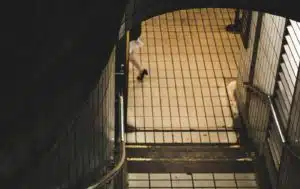The government has launched a National County Lines Coordination Centre to improve the UK's response to county line drug crimes.
County lines include criminals exploiting vulnerable young people to supply Class A drugs including crack cocaine and heroin from urban cities to market towns, coastal areas and rural locations. Gangs and criminal networks use extreme violence and intimidation to establish and maintain markets, with practices including forcing vulnerable people from their homes to establish a base to sell drugs.
The most recent national assessment of county lines, compiled by the National Crime Agency, suggests that there were more than 1000 lines in operation nationally with links to increasing levels of serious violence. There are already 200 active county lines investigations underway, but the introduction of the centre will allow police forces to intensify their operations.
Minister for Crime, Victoria Atkins said: "Using vulnerable young people to travel across the country to sell drugs is an appalling crime and we are cracking down on the gangs and networks responsible for these deplorable acts.
"The National County Lines Coordination Centre will strengthen the law enforcement response to this issue and enable police forces to work together to tackle a crime that crosses regions and demands a multi-agency approach.
"We are determined to put an end to the serious violence blighting communities. This measure will address one of the key drivers of these tragic crimes," she added.
The new National County Lines Coordination Centre, backed by £3.6 million funding, will include a new multi-agency team of 38 experts from the National Crime Agency, police officers and regional organised crime units who will work together to develop the national intelligence picture of the complexity and scale of the threat, prioritise action against the most serious offenders, and engage with partners across government, including in the health, welfare and education spheres, to tackle the wider issues.
The National County Lines Coordination Centre is the latest measure in the government’s response to the recent rise in serious violence, set out in the £40 million Serious Violence Strategy, which places a new focus on early intervention alongside robust law enforcement.
As part of the strategy’s analysis into the rise in violent crime, county lines and the broader drugs market was identified as one of the key drivers. Between 2014 to 2015 and 2016 to 2017, homicides where either the victim or suspect were known to be involved in using or dealing illicit drugs increased from 50% to 57%.
A number of Home Office measures are already in place to tackle county lines including the £13 million Trusted Relationship Fund which helps foster relationships between frontline professionals and young people at risk of exploitation. Local areas facing new gang-related threats can apply for match funding reviews and guidance for frontline professionals on how to identify potential victims.
NCA Director General (Operations), Steve Rodhouse, said: "The NCA is committed to protecting the public by tackling the serious and organised crime threats which cause the greatest harm to the UK.
"County lines is a national problem. Supply gangs are responsible for high levels of violence in addition to the exploitation and abuse of vulnerable adults and children.
"Law enforcement collectively has been stepping up its response, working to identify and take effective action in areas of the country with the most significant problems," he added.


